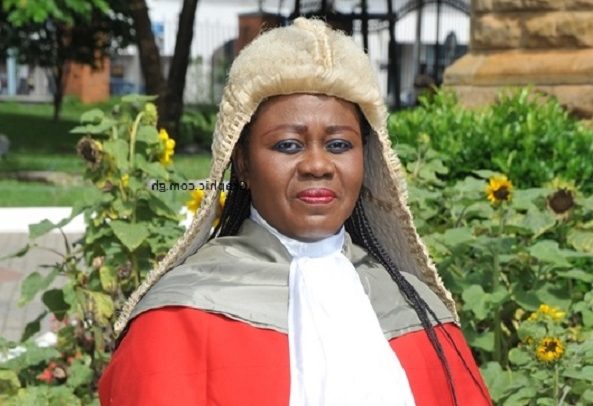Chief Justice Gertrude Sackey Torkornoo
The Chief Justice, Gertrude Sackey Torkornoo, has cautioned court officials not to take money from parties in disputes who opt for Alternative Dispute Resolution (ADR).
She said, “After the parties have paid their filing fees, they are not supposed to pay money to the court interpreter, the clerks, bailiffs, judges or the registrar.”
“All of these are deemed to be part of corruption in the court,” she pointed out.
The Chief Justice gave the caution when she officially launched this year’s ADR Week at the Sekondi High Court yesterday.
It was on the theme, “Building the Pillars of Justice through ADR.”
She explained that ADR refers to a range of methods, including mediation, arbitration, negotiation, and conciliation, which offers efficient and cooperative approaches to dispute resolution.
She noted that during every ADR Week, extensive public awareness is created in order to educate the citizenry on the use of ADR at the court.
“Stakeholders such as judges, court officials and lawyers are also sensitised to the option of ADR,” she pointed out.
She indicated that ADR was adopted to complement the regular court system for faster and efficient resolution of cases pending before the court.
She added, “When parties in a dispute come together in a coordinated and non-adversarial setting, they have the opportunity to express their concerns, fears, and expectations to each other, with the assistance of a mediator.”
She told the gathering that ADR encourages the preservation of relationships, and explained that in many legal disputes, the adversarial nature of litigation can leave a trail of bitterness and damaged personal or business connections.
“Efficiency is another hallmark of ADR. Traditional court proceedings are characterised by strenuous processes that lead to delays and costs, and these can hinder access to justice. ADR, on the contrary, is designed to be swift and cost-effective,” she said.
She pointed out that ADR also encourages innovative and tailored solutions to problems, stressing, “This is done by allowing parties to design resolutions that fit their unique circumstances; it promotes a sense of ownership over the outcome.”
She, however, revealed that ADR is not applicable to every case, including criminal cases of felony and matters of public interest, to a large extent.
“It serves as a huge complement to the traditional court system in dispensing justice. When used alongside traditional court proceedings, it provides a strong alternative for aiming at satisfactory results.”
From Emmanuel Opoku, Takoradi


